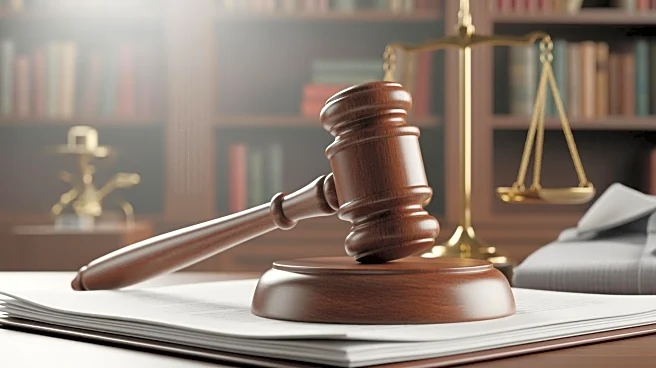What's Happening?
Fourth District Court Judge Tony Graf has granted Tyler Robinson's request to wear civilian clothing during court appearances in his trial for the alleged assassination of conservative activist Charlie
Kirk. The decision was made to ensure Robinson is presented as 'one who is presumed innocent' during pretrial hearings. However, the judge denied Robinson's request to appear without restraints and barred the media from capturing images of the defendant's restraints or his movements in and out of the courtroom. The trial is high-profile due to Kirk's prominence as a conservative figure and ally of President Trump, and the charges against Robinson include aggravated murder, with prosecutors seeking the death penalty.
Why It's Important?
The case has garnered significant public and media attention due to Charlie Kirk's influence as a conservative activist and his connection to President Trump. The decision to allow Robinson to wear civilian clothing is crucial in maintaining the presumption of innocence, which could impact public perception and potential juror bias. The trial's outcome could have broader implications for public discourse on political violence and the legal system's handling of high-profile cases. The prosecution's pursuit of the death penalty underscores the severity of the charges and the potential consequences for Robinson.
What's Next?
Robinson's next court hearing is scheduled for January 16. The defense and prosecution are expected to continue preparing for trial, including completing discovery and filing motions. The court will also consider whether non-evidentiary hearings should be held remotely and if any restrictions on courtroom cameras are necessary. The case's progression will be closely watched, given its high-profile nature and the potential for significant legal and societal implications.








